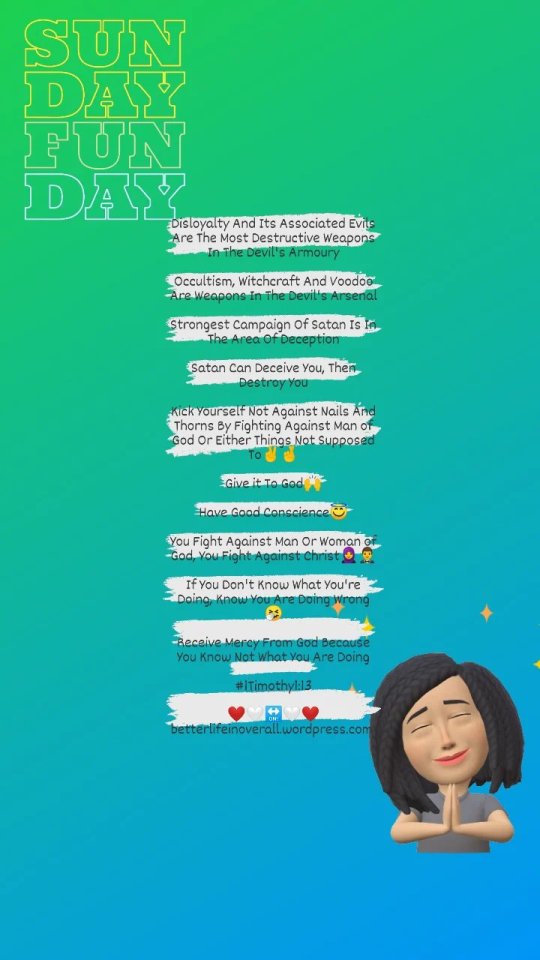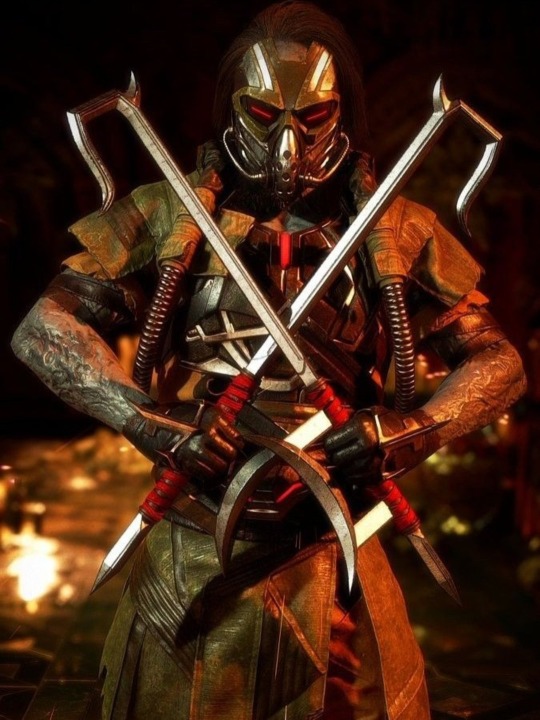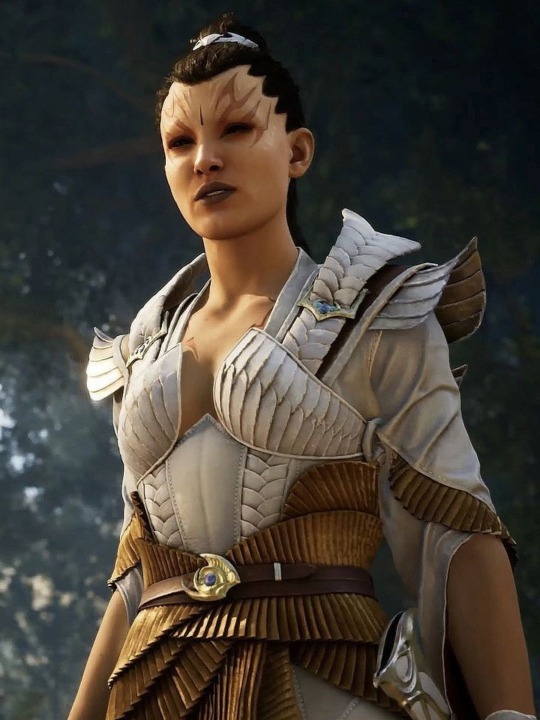#Deception In The World
Text
Disloyalty Against Disloyalty
A 365-Day Devotional Daily Keys By Dag Heward-Mills
Like, Shares and Follow
Please don’t forget to comment

View On WordPress
#1 Timothy 1:13#A 365-Day Devotional Daily Keys By Dag Heward-Mills#Acts 9:1-22#Dag Heward-Mills#Deception In The World#Destructive Weapons In The Devil&039;s Armoury#Disloyalty#Doing Wrong#Fought Against Christ#Fought Against Christian#Fought Against Church#Good Godly Conscience#Makarios#Ministry#Receive Mercy From God#Revelation 2:10#Satan&039;s Evil Spirits#Satan&039;s Evil Works Won&039;t Prosper
1 note
·
View note
Text
Worldbuilding: Questions to Consider
Government & authority:
Types of government: What type of government exists (monarchy, democracy, theocracy, etc.)? Is it centralised or decentralised?
Leadership: Who holds power and how is it acquired (inheritance, election, divine right, conquest)?
Law enforcement: Who enforces the laws (military, police, magical entities)?
Legal system: How are laws made, interpreted, and enforced? Are there courts, judges, or councils?
Laws:
Criminal laws: What constitutes a crime? What are the punishments?
Civil laws: How are disputes between individuals resolved?
Cultural norms: How do customs and traditions influence the laws?
Magic/supernatural: Are there laws governing the use of magic or interaction with supernatural beings?
Social structure:
Class/status: How is society divided (nobility, commoners, slaves)? Are there caste systems or social mobility?
Rights & freedoms: What rights do individuals have (speech, religion, property)?
Discrimination: Are there laws that protect or discriminate against certain groups (race, gender, species, culture)?
Economy & trade:
Currency: What is used as currency? Is it standardised?
Trade laws: Are there regulations on trade, tariffs, or embargoes?
Property laws: How is ownership determined and transferred? Are there inheritance laws?
Religion/belief systems:
Religious authority: What role does religion play in governance? Are religious leaders also political leaders?
Freedom of religion: Are citizens free to practice different religions? If not, which are taboo?
Holy laws: Are there laws based on religious texts or teachings?
Military & defense:
Standing army: Is there a professional military or a militia? Who serves, and how are they recruited?
War & peace: What are the laws regarding war, peace treaties, and diplomacy?
Weapons: Are there restrictions or laws regarding weapons for civilians? What is used as a weapon? Who has access to them?
Technology & magic:
Technological advancements: How advanced is the technology (medieval, steampunk, futuristic, etc.)?
Magical laws: Are there regulations on the use of magic, magical creatures, or artifacts?
Innovation & research: How are inventors and researchers treated? Are there laws protecting intellectual property?
Environmental/resource management:
Natural resources: How are resources like water, minerals, and forests managed and protected, if at all?
Environmental laws: Are there protections for the environment? How are they enforced? Are there consequences for violations?
Cultural & ethical considerations:
Cultural diversity: How does the law accommodate or suppress cultural diversity?
Ethics: What are the ethical foundations of the laws? Are there philosophical or moral principles that underpin them?
Traditions vs. change: Does the society balance tradition with progress? How?
Happy writing ❤
Previous | Next
#writeblr#writing#writing tips#writing help#writing resources#creative writing#worldbuilding#fantasy worldbuilding#fantasy writing#fantasy world#deception-united
123 notes
·
View notes
Text

oat
#oatchi#pikmin#myart#oatchi is DECEPTIVELY hard to draw. sure he's made of simple shapes. but the proportions and spacing mean a world of difference.#this is the only oatchi I've drawn that even comes close to capturing his oatchiness.
495 notes
·
View notes
Text
See here. BSD is a story about how all of our characters were once children. How the scars and wounds and secrets of their past will always haunt them to the present. We see it with Chuuya, Yosano, Ranpo, even Odasaku briefly, Atsushi, Tachihara, Akutagawa, Kyouka and Kenji right now, even Kouyou just a little bit. They've all overcome it or they've allowed it to consume them. And yet that brief glimpse into a past where they were young and scarred shows us once again just how human they are...every criminal, ever person, was once a child wounded by or protected from the world and doesn't that count for something even if it doesn't excuse the atrocities they commit today?
#its about the way backstories are burdens in this manga#im always a sucker for a good backstory but i love it even more when you can clearly see that...#...shedding the ghosts of your past is harder than it looks#and its more just a motivator but its also something that restricts and binds you#and this is why yosano's arc and also ranpo's arc are just so....#like one was horribly hurt by the world and the other somehow managed to be lucky and find a protector#and you can SEE how theyve both grown or overcome the baggage from their past#but how it still affects them like with ranpo holding onto the deception of his ability#and yosano getting angry at mori#AHHHHHHH i love this#bsd#bungou stray dogs#bungo stray dogs#bsd spoilers#kinda#too lazy to tag all the characters#bsd musings#character analysis#spitting nonsense
1K notes
·
View notes
Text

Something’s awful SKETCHY about those two girls… but it might just be the blonde one’s hairspray…
#Beetlejuice#beetlejuice animated#my art#procreate#beetlejuice cartoon#toonjuice#beetlejuice fanart#lydia deetz#clairelyds#claire brewster#claire x lydia#Whew! Who knew ship art was so deceptively simple?#There’s lots to learn… but I’m up for it!#The world needs more Clairelyds I think… and by golly I’m gonna make it! (Every great once in a while 😂)#It ain’t perfect but it’s hard work#claire brewster x lydia deetz
108 notes
·
View notes
Text
it still cracks me up to my bones that the romance plot that ended as an open ended sad separation was the cute, soft university boys who has multiple romantic musical numbers together and not the bodyguard/mafia boss who tried to kill each other and had sex against a mirror or the bodyguard/mafia 2.0 boss who tried to kill each other twice and had sex in a torture dungeon after their therapy hedgehog died
#kinnporsche#nope still kilsl me#i'm dying#kim and chay: hello world we're so soft and simple and chill#SIKE BITCHES#here's lying and deception and kim being unhinged while chay plays overwatch#porsche is getting fucked in a pool and pete is getting fucked wearing chains and they both got happier endings with their mafia men#chay's over here like#I can't believe kimlor montana betrayed me like this blocked#pikachu's chaotic recaps
579 notes
·
View notes
Text

This is a genuine question— does anyone have any advice for depicting/stylizing spock?
He’s got such a unique look about him that I feel is hard to capture when transferring him into my art style. This is the best I’ve come up with(after many attempts), but I was wondering if anyone with more experience drawing him than I has any pointers.
#I’m suddenly obsessed with this show and want to begin drawing art for it but have been STRUGGLING let me tell ya#please Star Trek artists lend me a hand#my art#art#digital art#question#Spock#Star Trek#star trek the original series#Star Trek tos#st: tos#tos#s’chn t’gai spock#spirk#I’m sorry if that’s deceptive but I’m adding that tag because the spirk fanart is some of the best#vulcan#star trek art#star trek strange new worlds#advice#critisism#I don’t know how much engagement a post like this will receive but am willing to attempt it
165 notes
·
View notes
Text

I find it funny how different my two favorite owl house AUs are lmao
@idoodlestuffsometimes @jess-the-vampire
#i speak words#shitpost#the owl house#caleb wittebane#brother’s keeper au#a reverse of feathers and mud au#in one au we have a good ending where philip didn’t stab caleb and Caleb gets to stay with his witch family while Philip figures out the-#boiling isles on his own and becomes a deceptive criminal in the process! fun times and deep conversations with the brothers ensue as they-#struggle to work out their pent up emotions about the other! drama! humor! but Caleb is so happy and free!#and then we’ve got brothers keeper au#which is. uh#not happy and good for Caleb. like at all.#a fantastic au but that man needs a break#in other words we’ve got the best of both worlds and I love it each of these aus are so good
618 notes
·
View notes
Text
Our stay on this earth is so so short, we’re in such a dream state that we keep forgetting this truth
#there’s this girl in my area who died two days ago just like that#collapsed due to the heat and then had a heart attack and died#الله يرحمها#she’s like 19/20#people our age are dying right next to us#yet we think we’re safe and still have time to improve to change to repent#what great regret it’ll be if we don’t die in the state of true sincere repentance but in one of ghaflah and self deception and sin#being consumed by your nafs by this world and sucked into it#اللهم اني اسالك حسن الخاتمة#we’re so lost in our worldly struggles and ideas and desires that we forget what we’re here for#you can live on this earth and engage with people and enjoy your stay even if you always keep your heart in check and your deeds aligned#with what Allah swt wants#you can turn all your actions into worship by having the right intention#eating sleeping -> to gain strength for worship and be of benefit for people#studying working -> learn about the beauty and intricacy that Allah has put into His creation#work to achieve what Allah has written for you#that’s true life connecting everything to the Creator the One who gave us life#everything else is just deception and will go to waste#and cannot be called a true life
186 notes
·
View notes
Text
Just finished fourth wing and damn do I need the next book. Holy hell that ending was a rollercoaster in the best way possible.
#fourth wing#violet sorrengail#violance sorrengail#xaden riorson#violet and xaden#rebecca yarros#snarky dragons#enemies to lovers#betrayal#deception#the ‘I’ll burn the world for you’#holy fuck
82 notes
·
View notes
Text
Naruto is a bad ninja. That's like baby’s first Naruto criticism. This is supposed to be a manga about ninja, yet its main character is a loudmouth clad in bright orange who has never even heard of the word subtlety. There are even large stretches of the manga where he is one of the weakest main characters, so he’s even failing at the manga’s specific definition of a ninja. He is just horrible at it. But one thing that I never hear a lot of people mention is that Naruto is a bad ninja by design, he needs to be.
The Land of Waves Arc serves two main functions. The first is easing the reader or viewer into the world of shinobi on a very “scientific” level. You learn what chakra is, what the three main types of jutsu are, what chakra control is, how ninja rank works, what kekkei genkai is and so on and so forth. Everything that would be in a textbook to be studied by entry level ninja is in this arc. The second function is a look into the world of shinobi on a more “ideological” level in the second half. Ninja take on jobs, but rarely do they take on jobs for other ninja. They mainly take on jobs for local feudal lords or crime lords who wish to use these strengths for political purposes. In this way, Naruto’s ninja are sorta like mercenaries. Ninja are expected to kill the people who they have culture and shared experiences with for the sake of people who really couldn't care less about them. Their intelligence is their most valued aspect and emotions can compromise that so a trained ninja can’t even cry. As Zabuza says, a ninja is just a tool to be used by their employer and anyone who cannot do that, is a bad ninja.
One of the most genius things about this arc is that almost every named ninja we see ends up breaking a vital rule of the ninja code. Haku and Sasuke sacrifice their lives for loved ones, compromising their mission in the process while Sakura, Naruto and Zabuza are reduced to blubbering crying messes by the end. They all failed at being ninja because to be a ninja is to cast away your humanity, something that isn’t really possible. By the end of the first arc, the series has planted the idea that being a ninja isn’t something to be desired. Ninjutsu and throwing stars are cool, but this ideal of a “real” ninja is so cynical and cold that anyone who could pull it off perfectly would be as miserable as they are abhorrent. Trust me, we’ll get back into that. The arc ends with Naruto deciding that he’ll find his own ninja way. A way to be a ninja that is not synonymous with pain and cruelty.
Following the Land of Waves we go to the Chunin Exams, the stock tournament arc of the series. One thing that sets Naruto’s tournament arc apart from a more standard one is that winning isn’t the primary goal. Anyone who has watched the show or read the manga might say “Of course winning isn’t the primary goal, Shikamaru lost, yet was the only Konoha genin to promote”, but becoming Chunin isn’t even the main goal of the Chunin exams. The main goal of the Chunin Exams is to show off a nation’s talent, both as an advertisement to would-be employers and as a flex to rival villages to show what they have in store for them if they try to start a war. It was created as a form of deterrence, a ninja equivalent to broadcasting a video of your nation’s rocket capabilities. Ironically, this “mock war” ends up turning into a real war as Orochimaru uses it as a smoke screen for his real invasion. Naruto comes into the exams pretty unprepared as a fighter, but very prepared emotionally. He speaks to the demons inside of Neji and Gaara, desperately wanting to ease the pain that they’re going through. He can’t stand the idea of losing them, just like he lost haku so he talks to them like they’re people and not weapons and it resonates. The two would end up becoming lifelong friends with Naruto as a result and it had jack shit to do with his skill as a ninja. He succeeded with them because he was a person to them.
The Search for Tsunade arc is not too important for this analysis, but does introduce an idea that will become important later where Jiraiya purports that a real ninja is “one who endures”. This isn’t just fancy waffling but how the literal kanji for the word “ninja” can be broken down. That’s why, in Jiraiya’s eyes, being a ninja is not about being the most efficient or knowing the most jutsu. It’s about never giving up even when everyone else wants you to. It is what he has done his entire life and what he teaches Naruto to do. However, this is far from the only interpretation of “one who endures”. Sasuke’s flashbacks of how he remembers Itachi is massively important to our understanding of ninja because Itachi is the perfect ninja. Remember that “One Who Endures” thing? Yeah, Itachi takes that to the extreme because he thinks that it is a viable path for a shinobi to be hated by all. If that lets them do their job to the best of their ability, so be it. That’s why he handles the Uchiha coup like he does. He becomes hated by his entire village, the entire world and hated most of all by the person he loved the most. But Itachi got his job done. He did it so well that no one ever knew he was doing a job at all.
If Itachi is what lies at the end of all shinobi, if all of them got to be "perfect", we’d have entire clans and communities getting slaughtered by well meaning people just wishing to prolong the existence of the village by a couple of years. Itachi’s partner Kisame has a very similar backstory. In fact, you could argue that all of the Akatsuki are perfect shinobi. All young prodigies who were allowed to exercise cruelty because that’s what their job called for and simply got cut off by the people who weren’t able to handle the monsters that they created. It’s no coincidence that this group of ninja who were all able to be better ninja at the cost of their humanity all show some form of body horror or inhumanity in their design.
This pertains most to Sasori, one of the main villains of the Kazekage Rescue Arc. Sasori was clearly traumatized but no one in the sand cared because he was able to channel that trauma into his incredible skill with puppet ninjutsu. And then when he became more and more broken over time, creating human puppets and assassinating Kazekage, they tried to act as if they had no hand in that. However, just like Zabuza and Gaara before him, Sasori could not fully discard his humanity. He tried to replace so much of his human body with puppetry but he was never able to get rid of his heart, poetically. The same goes for Sai in the next arc, who has been trained from birth to kill off all individuality. Even before his big turn, Sai constantly laments over the fact that despite trying so hard, he can never get anyone to truly like him. It’s natural that as humans we crave connection and want to love. The more you try to act like this is a lie, the more you end up like a Sai. And no one likes Sai.
A similarly unlikable character would be Kakashi during the events of Kakashi Gaiden. Another ninja capable of putting the job above all his personal connections and he constantly disrespects his friends and own father. Sakumo Hatake was incredibly strong, but far from the perfect ninja I’ve been describing. He decided to abandon a mission partway, which saved his allies but inconvenienced his employer. The derision he faced was enough for him to commit suicide. In Kakashi’s eyes, his father was a coward, but to Kakashi’s best friend Obito? Sakumo was a hero. He might have been a bad ninja, but if caring about people you love makes you a bad ninja, then good ninja do not need to exist. Obito holds this opinion not as a villain, but as a rather heroic child with shocking similarities to Naruto. When he later fights Naruto, Naruto ends up appealing to Obito by empathizing with his beliefs about the ninja world. It sucks! His best friend’s life was ruined by a “perfect” ninja, he spent his entire life being hated and used because the ninja code for Jinchuriki was to roll them out as weapons during war time and then shamefully hide them during peacetime. Naruto knows why Obito would want to tear it down because he also wants to. They just have differing methods of how to.
The same goes for Sasuke when he rises up to become the final villain of the series. Sasuke recognizes the poison on the ninja world, what it does to people like him, his brother his best friend, Hashirama and Madara, every ninja in existence. That is why he wishes to forge a new path, killing off the ruling class and uniting all against him. It’s essentially what Itachi did, but on a global scale. Sasuke’s plan is bad and fails because it relies on embracing a ninja truth and the antithesis of the series - severing one’s bonds. Every single arc time and time again we come to learn that this idea of “severing bonds” does not work, it cannot work. The pit of loneliness you’re left in will kill you or warp you to a point where you’re no longer human. Naruto’s answer is forming an unbreakable bond between all people. Disrespecting and blurring the artificial line between class, between village, between civilian and ninja. The Great Naruto Bridge from the Land of Waves is a little cheesy, but emblematic of his final role in the story. Through his kindness he becomes able to link all together and he didn’t do this by being a good ninja. He did it by being a pretty bad one.
#long post#mucho texto#naruto#naruto analysis#i could probably spend ages talking about what it means to be a ninja in naruto#and how every character interprets that differently#a character like itachi weaponizes deception to influence the world around him#but the same could be said about a character like sakura who frequently lies to naruto under the guise of protecting him#and as much as people want to act like that's a sakura exclusive flaw it isnt#its just what ninja are pushed to do#emotions are just another tool to be used in this system
45 notes
·
View notes
Note
How do you create laws and rules for building fantasy worlds? I have a hard time defining these things, especially as a beginner. Do you have any ideas to help me?
Hi, thanks for asking and so sorry for the delayed response. Creating laws and conventions for your fantasy world is a fascinating aspect of storytelling, though the process can be difficult. Here are some ideas to help you get started:
Define the world's purpose. What kind of stories do you want to tell in this world? What themes, genres, or tones do you want to explore? This will help you determine what kind of rules and laws are needed.
Establish a foundation. Decide on the basic structure of your world, such as its geography, climate, cultures, and magical systems (if applicable).
Determine the rules of magic. If your world has magic, define how it works, its limitations, and its consequences to maintain consistency and balance.
Create a hierarchy of laws. This can include physical laws (gravity, physics, etc.), magical laws (if applicable), social laws (cultural norms, taboos, etc.), and political laws (governance, laws of the land, etc.).
Consider the consequences. Think about how these laws and rules will impact your characters and the world.
Be consistent. Stick to your established laws and rules. Consistency is key to creating a believable world.
Leave room for flexibility. Don't be too rigid. Allow for exceptions, surprises, and evolutions in your world. This can bring unexpected plot twists or force your characters to think on the spot and come up with new solutions or plans of action.
Keep track of your world-building. Write down your laws, rules, and lore to keep everything organised and consistent.
Here are a few questions and guidelines to consider when defining the laws and conventions of your fantasy world:
Physical Laws:
What is the nature of time and space?
How do the laws of physics differ from our own world (e.g., gravity, motion, energy)?
Are there unique natural phenomena (e.g., magical energies, elemental forces)?
Magical Laws:
What is the source of magic in your world (e.g., innate, divine, arcane)?
How is magic accessed and controlled (e.g., spells, incantations, rituals)?
What are the limitations and costs of using magic (e.g., exhaustion, corruption, moral consequences)?
Social Laws:
What are the cultural norms and values of different societies in your world?
How do social hierarchies and power structures function (e.g., monarchies, democracies, tribes)?
What are the customs and taboos surrounding magic, technology, or any other sensitive topics?
Political Laws:
What forms of governance exist in your world (e.g., kingdoms, empires, city-states)?
How are laws created, enforced, and punished (e.g., trials, punishments, rehabilitation)?
What are the relationships between different political entities (e.g., alliances, rivalries, vassalage)?
Remember, world-building is an iterative process. Don't be afraid to make changes and adjustments as your world evolves, and feel free to add to or modify the questions and guidelines to suit your story and your world. For a more extensive list of questions and guidelines, check out my previous post. Hope this was helpful! Happy writing ❤
Previous | Next
#ask#writeblr#writing#writing tips#writing advice#writing help#writing resources#creative writing#worldbuilding#fantasy worldbuilding#fantasy world#fantasy writing#deception-united
44 notes
·
View notes
Text
"nanobots" the song is this deconstructed view of child development and parenthood where it's like, 'wow have you ever thought about how weird producing offspring is. like, it's weird, right! we make these little people and they quickly grow into their own individual personalities with their own lives and autonomy and I've lost all authority and there's so many and you've gotta be responsible for them all the time, what did I do !!!'
but as well as approaching it with this slightly overwhelmed perspective, there's a sort of affectionate optimism in there, too. that even tho the concept's intimidating, there's a sense of wonder in how humans develop and raising them and watching them grow up. hey this kid thing's fun actually, yeah I wish they'd leave me alone sometimes, but look at how cute and resilient they are look at what they can do. and then "replicant" is like jesus parenting a teenager is hard.
#tmbg#it's a tough competition with about 200 songs#but I honestly think ''I turn my back for two minutes and they've grown again'' is one of tmbg's most poignant lyrics#it's not an original sentiment and one that could even be viewed as somewhat sentimental and hokey with a less skilled execution#like what person or piece of art Hasn't expressed the bittersweet experience of feeling a child's growing up too quickly a million times#but there's just something about the way it's slotted into nanobots#nanobots is honestly cute. and I don't mean that in a reductive ''cutesy'' way I mean as a good thing it's just genuinely very adorable#from a band whose music is a lot of things but you wouldn't typically describe as ''adorable''#I think it's because their songs so often Don't carry this sort of tone that it works in the same way ''another first kiss'' does#there's an uncountable amount of lovesongs in the world. like. THE most popular theme. what can you say that hasn't already been expressed#but lines like ''we've run out of things to say. and we'll be happy any way'' and ''grabs my coat to walk away''#are just such beautifully deceptively simplistic ways to express the mundanity of a healthy relationship#they like each other's company still after all these years and they share their clothes waaah#anyway to get back on topic I love nanobots much for the same reasons as ''I love you for psychological reasons'' and ''mammal'' lmao#myautismhasnothingtodowiththis.jpg
19 notes
·
View notes
Text
Mortal Kombat Tournament - Round 1A - Match 6


Kabal - Mortal Kombat 3 (1995)
Ashrah - Mortal Kombat: Deception (2004)
#mortal kombat tournament#world warrior and friends#wwaf#wwaf bracket#mortal kombat#tournament#polls#character tournament#tournament poll#poll tournament#kabal#ashrah#mortal kombat 3#mortal kombat deception
22 notes
·
View notes
Text
It can't be just me right that loves imagining herself in the place of the female protagonist in stories? Even if it's fiction, I love the feel of being 'loved' by the significant other character. It makes me so happy, content. Like, 'yes, baby you aren't real but at least in an alternate universe I was yours and you were mine, and in that world I got to love you and had the absolute honour to have my feelings reciprocated' way.
I love the idea of being in love. Life doesn't offer me that so fiction does. (Fictional boyfriends on the rise)
I just completed reading The Spanish Love Deception by Elena Armas and I already miss Aaron Blackford.
#so yea#im lonely#and sorta sad#wish i could run away to another world#a beautiful alternate universe if you will#and just live laugh and love#books#booklr#aaron blackford#the spanish love deception#book boyfriends#fiction#love#adam carlsen#the love hypothesis#levi ward#love on the brain#books and reading#self insert#x reader#eren yeager#eren jaeger#gojo satoru#satoru gojo#noah wynknight#obey me lucifer#lucifer obey me#aaron warner#book boyfriend
199 notes
·
View notes
Note
You SPEEDRAN falling in love with an NPC, I have never seen someone go from "who tf is this?" to "sleeping to dialog comps" so fast. Its kinda impressive and I salute you

shutupshutupshutupshutupshutupshutupshutupshutupshutupshutupshutupshutupshutupshutupshutupshutupshutupshutupshutupshutupshutupshutupshutupshutupshutupshutupshutupshutupshutupshutupshutupshutup
#I JUST THINK HES NEAT OK ;;;;;#HE'S FUNNY AND PROBABLY VERY TRAUAMTIZED WHAT DO YOU WANT FROM ME#I WAS TRICKED INTO THIS#TEN DOLLARS!!! TEN DOLLARS TO BE SUCKED INTO A TUMBLR DOT COM CULT#*PLS GET NUKA WORLD SO U CAN WRITE GAGE* A FARCE! A LIE!!!! A TRICK!!!!!!!#DECEPTION!!+!!!!!!!!!!!!!!!!!!!!!!!!#IT WAS NEVER ABOUT THE REACTS YOU FUCKS KNEW THIS WOULD HAPPEN#LOOK AT ME#I SPENT TWO HOURS ASKING HIM FOR HIS THOUGHTS AND ABT OUR RELATIONSHIP#JUST TO HEAR MARK ROLSTON CALL ME A STUNNER#I DIDNT SIGN UP FOR THIS#I SAID NO MORE BLORBOS AND YOU /SUCCUBI/#YOU /DEMONS/#*ITS A SHORT DLC AND THE COMPANION IS NEAT* I SPIT ON ALL OF YOU#asks
63 notes
·
View notes